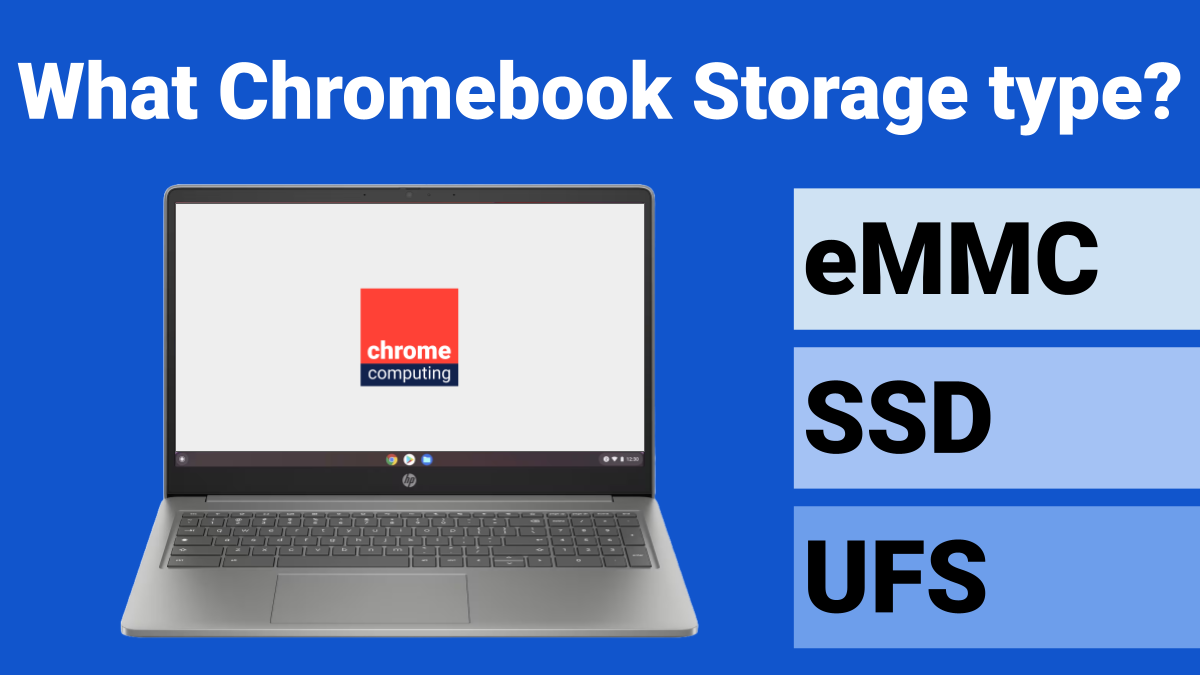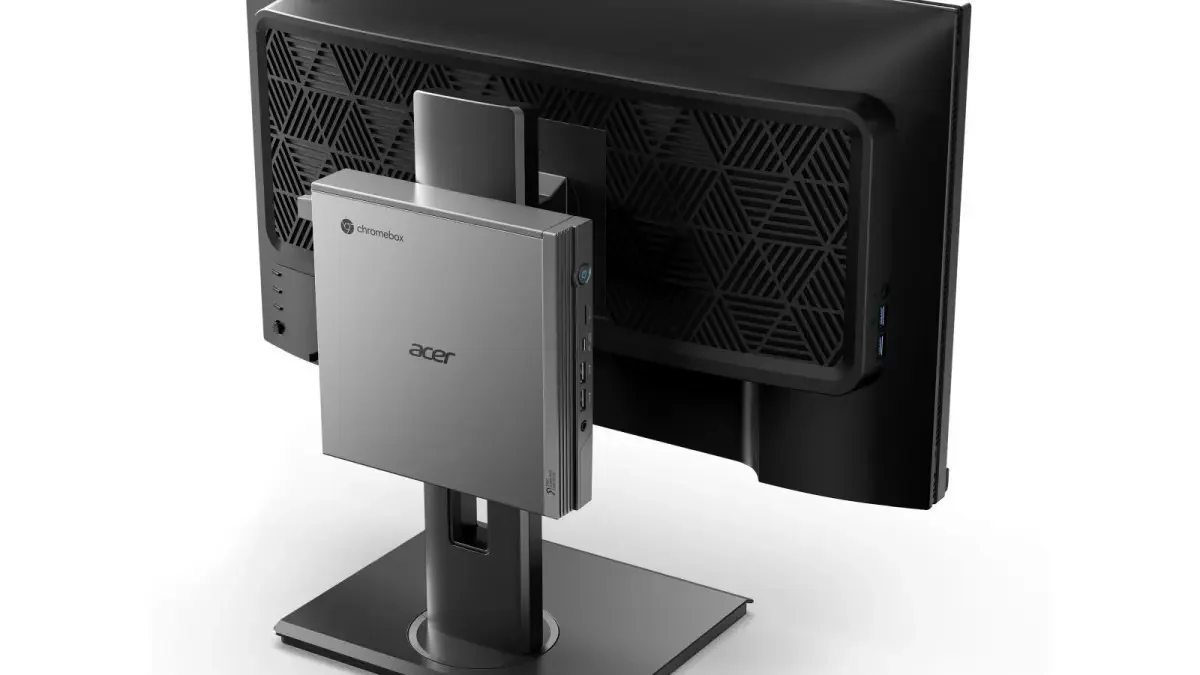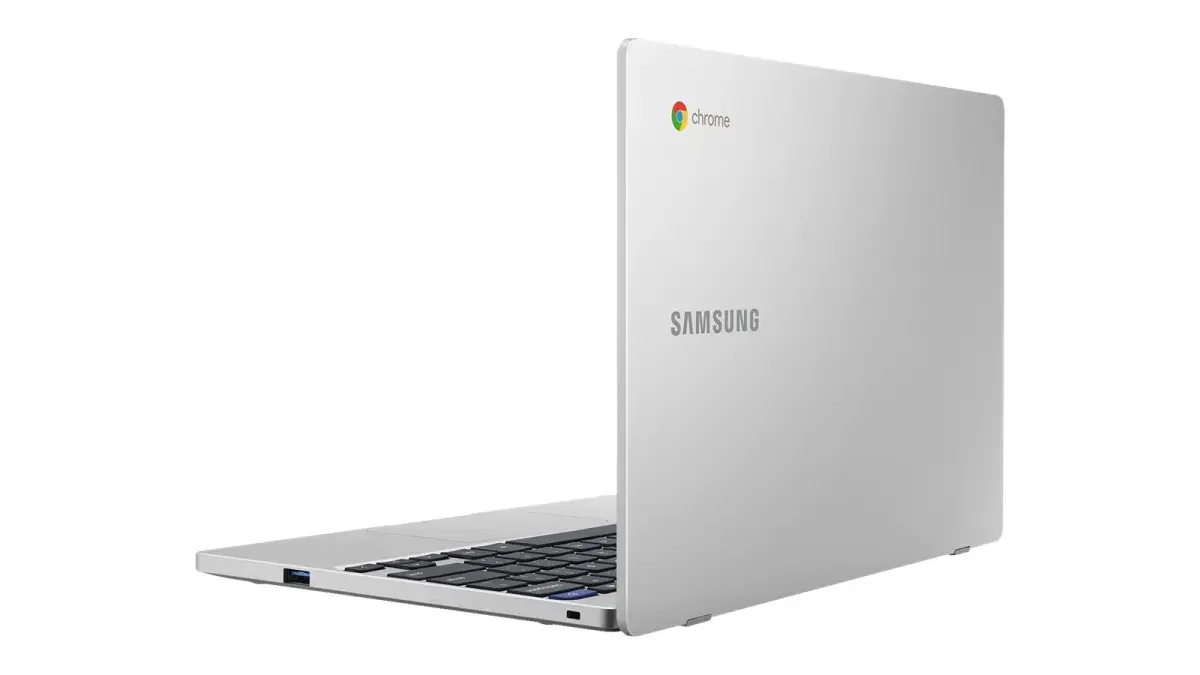eMMC, SSD or UFS storage for a Chromebook
Are you thinking of buying a Chromebook and come across either eMMC, SSD or UFS when looking at the storage? I’ll explain what it all means and what to consider when buying a new Chromebook.
When the Chromebook was originally launched in 2011, most devices available came with eMMC storage. This is a cheap flash storage option, and it was ideal for the Chromebook at the time.
You’ll still find many Chromebooks that come with eMMC storage today, and you’ll typically find this type of storage in cheaper models. Just because it’s a cheap storage option does not mean you should avoid it; it just depends on what you’re looking for from your new Chromebook.
So let’s take a further look at these storage options, so you’re making the right decision before parting with your cash.
What is eMMC storage?
eMMC stands for “Embedded Multi-Media Card”, and is flash storage that is directly soldered onto the computer’s motherboard. This means you can’t just open up your Chromebook and replace the storage at a later date. That being said, that isn’t how it works with any type of Chromebook, so this isn’t anything to be concerned about.
It’s typically found in cheaper mobile phones, laptops and smartphones thanks to its tiny size. The good thing about eMMC is that it uses very little power, so it helps with the overall performance and battery usage. It also has no moving parts like you’d get with a traditional Hard Disk Drive (HDD).
I’ve owned a few Chromebooks that used eMMC storage, and I never had any issues. However, if you’re buying a high-powered Chromebook or intend to use Linux, then you’ll notice the difference in performance, especially when installing Linux programs. Also, eMMC usually offers lower storage, such as 32GB or 64GB, but is also seen in Chromebooks with 128GB of storage, such as the Lenovo IdeaPad Slim 3 Chromebook.
What is SSD Storage?
SSD stands for “Solid State Drive” and is also referred to as a “Solid State Disk”. It’s without question far superior to eMMC as it’s more durable and provides much greater read and write speeds. Because an SSD is more durable than eMMC storage, it generally has a longer lifespan. Similar to eMMC, SSD has no moving parts like you’d find in a traditional HDD.
Although SSD is much better than eMMC, it means you’ll tend to only find such storage on more expensive Chromebooks like the Asus CX34 14-inch Chromebook.
An SSD drive can also offer much higher capacity, which is why you’ll find most Chromebooks that offer 128GB or higher usually come with SSD storage.
What is UFS Storage?
UFS stands for “Universal Flash Storage” and is typically found in high-end mobile phones, tablets, and is starting to be seen in some Chromebooks. UFS is arguably not as fast as SSD storage, but later versions such as UFS 4.0 offer read and write speeds that can compare to SSD.
The reason why we’ll likely start to see more Chromebooks come with UFS is that the performance between SSD and UFS is almost comparable. The HP 15a 15.6-inch Chromebook uses UFS storage.
The benefit of UFS compared to SSD is that it uses less power, which is important for your Chromebook’s battery life performance. Again, UFS has no moving parts like you’d find in a traditional HDD.
At present, SSD is still considered more robust and generally faster, which is why you’ll see such drives in servers. However, SSDs are more expensive and use more power, which is why Chromebooks offering a good balance between performance and price will likely offer UFS storage.
Summary
So the question is, what storage option should you consider when buying a Chromebook? If you’re looking for a cheap laptop, then eMMC storage is perfectly fine.
More high-end Chromebooks generally come with SSD storage. This is mainly because it’s more durable, offers far greater speeds than eMMC, and you can get much greater storage options, such as 256GB.
UFS storage is a relatively new storage option to see in Chromebooks. Yes, it’s true that UFS cannot compete with high-end SSD storage. However, UFS still offers much better durability and read write speeds than eMMC. UFS also uses far less power than SSD, so it will use less of your Chromebook's battery life compared to SSD.
Essentially, if you’re looking for a super-cheap Chromebook, then eMMC is fine. If you want the best in performance and durability, then SSD is the way to go. That being said, UFS should definitely not be overlooked, as it offers far superior storage than eMMC, and you’ll most likely find a Chromebook with UFS is cheaper to buy than a Chromebook with SSD storage.






